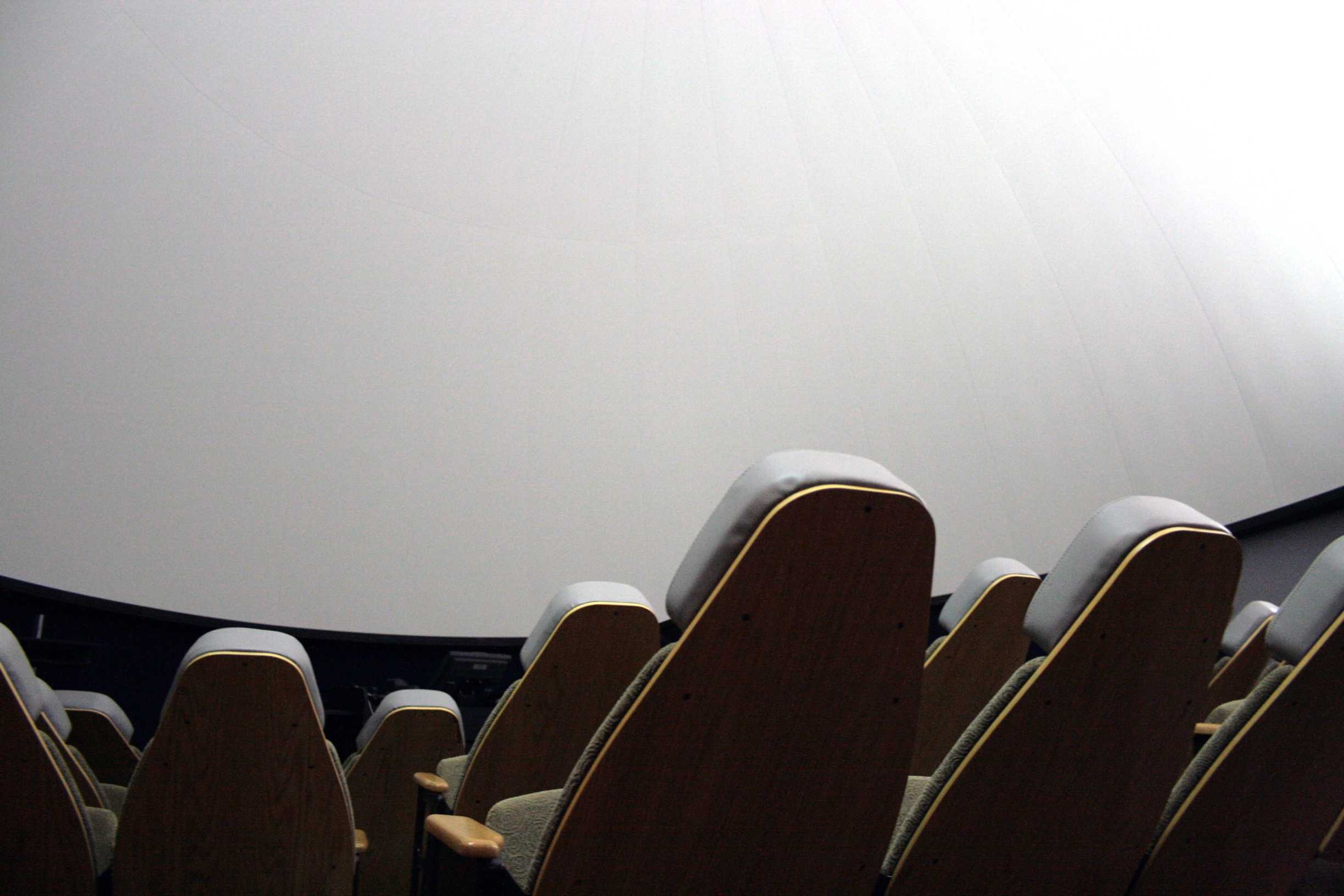 Charlotte Etherton/Photo Editor
Charlotte Etherton/Photo EditorAlthough the Haile Digital Planetarium is primarily used by the Department of Physics and Geology for classes, including low-level astronomy classes, it also is used for many other things, such as showing short films on the weekends and being one of Northern Kentucky University’s outreach programs.
The wide variety of events is due to the planetarium’s connection to NKU’s Community Connections Program. The purpose of the program is to foster NKU’s commitment to help educate elementary, middle school and high school students.
‘We believe the sooner students are exposed to college, the more likely are they are to decide to go to college in the future,’ said Melanie Hartzel, NKU community connections coordinator.’ ‘We want students to begin to think about their futures and how college can play a role in their goals.’
In doing this, Hartzel and others involved hope to inject a bit of enthusiasm about college into younger kids.
‘It is all about finding ways to teach students in exciting and engaging ways,’ said Planetarium Director Dan Spence. ‘Modern planetariums, using digital technology and projection systems, make it possible to create an immersed environment that projects essentially any media onto the dome.’ This allows us to virtually take students to places they could not otherwise go.”
Currently the planetarium is one of the most popular activities for schools. Hundreds of area K-12 schools, as well as local pre-school programs, visit. Visitor attendance in the 2008-09 academic year reached approximately 3,500 students. Including public shows, the total amount of visitors was 4,400.
The planetarium was funded through the Haile Foundation, which donated $500,000. Senator McConnell obtained approximately $1.2 million in grants from NASA. Since the Planetarium was not university funded it is always free for everyone.
‘There are no charges for the P-12 student groups or other community groups that come to shows,’ Spence said. ‘We even offer our programs to other schools and planetariums for free. This is all due to the fact that the facility is supported by public funds.’
Community Connections hires student campus guides to escort the visiting groups around campus. In an effort to make sure younger students are not disrupting NKU students.
‘We never displace NKU classes for our programs and instead of packing the Student Union with a bunch of children, we use the old cafeteria in the University Center for lunches,’ Hartzel said.
‘We host events as community service,’ Spence said. ‘The goals are to enhance P-12 education by providing the children with experiences they could not get otherwise. Events for the general public are intended to educate them on astronomy and related sciences in order to make them more informed citizens.’
What Hartzel is also hoping people realize about the planetarium is its potential to affect not only NKU, but the surrounding area as well.
‘I think it is important for NKU students to realize that the university is not just a place for them to receive their education,’ Hartzel said. ‘It is also a place that is dedicated to community outreach and improving education in our region.’
‘

